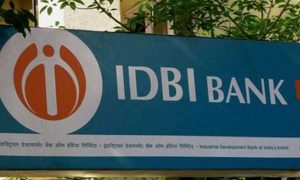Businesses and governments issue bonds to meet their long-term needs.
ABond is a debt instrument in which an investor lends money to an entity (usually corporate or government) which borrows the funds for a defined period of time at a variable or fixed interest rate.
As per BSE, the capital market comprises the equities market and debt market. Debt market is a market for the issuance, trading and settlement in debt instruments of various types.
Debt instruments called fixed income securities are issued by a wide range of organisations like the Central and State Governments, statutory corporations or bodies, banks, financial institutions and corporate bodies.
The Bond issuer promises returns at the end of the bond tenure, along with interest payments at regular intervals.
Many people are keen on investing, but the risks and fluctuations that accompany stock markets, deter them. For people with a conservative investment outlook considering risks, there is an option to invest in bonds in India.
Businesses and governments issue bonds to meet their long-term needs and to bridge their current expenditure shortcomings.
People invest in bonds, because they are considered to be safer, when compared to shares and other securities in the markets.
Types of Bonds: There are various subcategories of the Bonds listed below.
Read More: Income Tax slab to HRA rule changes: Salaried employees’ expectations from Budget 2023
1) Government Bonds: These Bonds are issued by the Central and State Governments as well as the local governments (like municipalities).
2) Corporate Bonds: Corporates issue these Bonds to meet their capital needs. There are sub-categories in these Bonds as well.
3) Tax saving Bonds: Motilal Oswal defines tax saving bonds or tax free Bonds as the Bonds issued by the government to provide tax savings to individuals. Along with the interest, the holder would also receive a tax benefit. These Bonds are good for senior citizens and those individuals who wish to save on tax in the long run.
4) Bank and financial institution Bonds: These Bonds are issued by various banks or financial institutions. A number of Bonds that are available in this segment are from this sector.
5) Infrastructure Bonds: Offered by multiple banks to develop and enhance the infrastructure of the nation.
7) Sovereign gold Bonds: SGBs are government securities denominated in grams of gold. They are substitutes for holding physical gold. Investors have to pay the issue price in cash and the Bonds will be redeemed in cash on maturity.
Difference between Shares and Bonds
Bonds put the lender in the position of a creditor to the bond issuer and a share puts the investor in the position of a shareholder.
Investors must note that it is advisable to check with their financial advisor before making investment in bonds or any financial instrument.



































